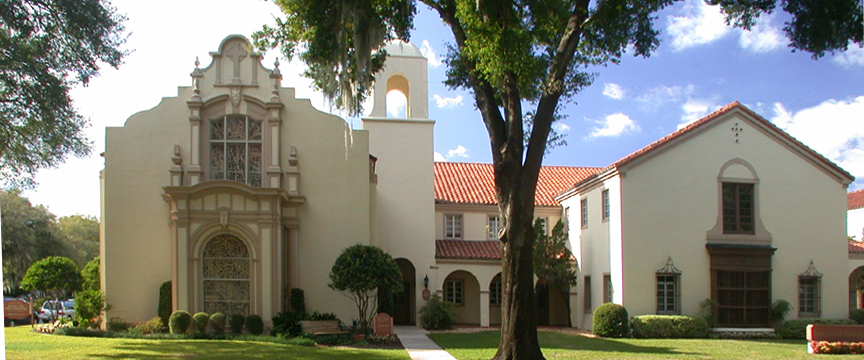April 15
Scripture:
Mark 14:3-9 New Revised Standard Version (NRSV)
The Anointing at Bethany
While he was at Bethany in the house of Simon the leper, as he sat at the table, a woman came with an alabaster jar of very costly ointment of nard, and she broke open the jar and poured the ointment on his head. But some were there who said to one another in anger, “Why was the ointment wasted in this way? For this ointment could have been sold for more than three hundred denarii, and the money given to the poor.” And they scolded her. But Jesus said, “Let her alone; why do you trouble her? She has performed a good service for me. For you always have the poor with you, and you can show kindness to them whenever you wish; but you will not always have me. She has done what she could; she has anointed my body beforehand for its burial. Truly I tell you, wherever the good news is proclaimed in the whole world, what she has done will be told in remembrance of her.”
Devotions:
Lavish Worship
In reading Mark’s passage, one might assume this to be a simple exchange of differing opinions based on perspective. Jesus and His disciples are sharing a meal at the house of Simon a few days prior to Jesus’ triumphal entrance into Jerusalem. A woman, called Mary, approaches and proceeds to pour a jar of expensive perfume over Jesus’ head as an anointing. Some of those present become indignant and criticize her as wasteful which brings a rebuke from Jesus. Further, He calls her act beautiful.
“Beautiful.” If I’m honest with myself, I may have sided with the dissenters. After all, Jesus identity of humility certainly didn’t align itself with such an excessive display. And given His teachings and propensity toward the marginalized, a jar of highly valued perfume worth a years wages in that day does seem a bit much. It is believed according to custom that this oil would likely have been reserved by the family as an heirloom of sorts; possibly part of a dowry or for Mary’s own burial. Beyond the finance, Mary bore an additional cost. As a result of her extravagant worship she received the wrath of those who thought her unjust and likely surrendered any social responsibility she held within the community.
So what was Mary’s possible motive in this “beautiful action”? Was she overwhelmed at Jesus presence? Was she embarrassed by the fact that Jesus feet remained unwashed as He reclined at the table? (Custom dictated that the feet of a guest entering the home were washed upon entry) Did Mary know something that the disciples did not?
A better question might be, what did Jesus experience that He described as beautiful? Mary held back nothing; not a drop of oil. Ignoring the rules, she offered an entirely unnecessary expenditure in a show of honor and reverence. Mary was saying, “I recognize that You are God in the flesh.” Hers was a tribute worthy of a king.
How about us? How do we worship as 20th century followers of Christ? In the shadows with a murmur of the lips and tongue? Or do we lose it for Gods sake? In casual routine or lost in wonder, love, and praise? A.W. Tozer writes, “Any man or woman on this earth who is bored and turned off by worship is not ready for heaven.”
Dear Lord, may we leave ourselves behind and praise you with abandon!
~Amy Richardson
April 16
Scripture:
Mark 14:32-52 New Revised Standard Version (NRSV)
Jesus Prays in Gethsemane
They went to a place called Gethsemane; and he said to his disciples, “Sit here while I pray.” He took with him Peter and James and John, and began to be distressed and agitated. And he said to them, “I am deeply grieved, even to death; remain here, and keep awake.” And going a little farther, he threw himself on the ground and prayed that, if it were possible, the hour might pass from him. He said, “Abba, Father, for you all things are possible; remove this cup from me; yet, not what I want, but what you want.” He came and found them sleeping; and he said to Peter, “Simon, are you asleep? Could you not keep awake one hour? Keep awake and pray that you may not come into the time of trial; the spirit indeed is willing, but the flesh is weak.” And again he went away and prayed, saying the same words. And once more he came and found them sleeping, for their eyes were very heavy; and they did not know what to say to him. He came a third time and said to them, “Are you still sleeping and taking your rest? Enough! The hour has come; the Son of Man is betrayed into the hands of sinners. Get up, let us be going. See, my betrayer is at hand.”
The Betrayal and Arrest of Jesus
Immediately, while he was still speaking, Judas, one of the twelve, arrived; and with him there was a crowd with swords and clubs, from the chief priests, the scribes, and the elders. Now the betrayer had given them a sign, saying, “The one I will kiss is the man; arrest him and lead him away under guard.” So when he came, he went up to him at once and said, “Rabbi!” and kissed him. Then they laid hands on him and arrested him. But one of those who stood near drew his sword and struck the slave of the high priest, cutting off his ear. Then Jesus said to them, “Have you come out with swords and clubs to arrest me as though I were a bandit? Day after day I was with you in the temple teaching, and you did not arrest me. But let the scriptures be fulfilled.” All of them deserted him and fled.
A certain young man was following him, wearing nothing but a linen cloth. They caught hold of him, but he left the linen cloth and ran off naked.
Devotions:
Have you ever dealt with disappointment from someone you trust? Jesus’ closest disciples Peter, James and John were so overcome with sleep that they did not detect how stressed he had become. We are not sure of why they were they were so sleepy: tiredness from the day, stomachs full from dinner or their normal time for bed? However, Jesus’ disappointment did not break relationship, he confirmed it by selflessly going to the cross for all of us.
~Rick Jones, Director of Family Ministry
April 17
Scripture:
Mark 14:53-65 New Revised Standard Version (NRSV)
Jesus before the Council
They took Jesus to the high priest; and all the chief priests, the elders, and the scribes were assembled. Peter had followed him at a distance, right into the courtyard of the high priest; and he was sitting with the guards, warming himself at the fire. Now the chief priests and the whole council were looking for testimony against Jesus to put him to death; but they found none. For many gave false testimony against him, and their testimony did not agree. Some stood up and gave false testimony against him, saying, “We heard him say, ‘I will destroy this temple that is made with hands, and in three days I will build another, not made with hands.’” But even on this point their testimony did not agree. Then the high priest stood up before them and asked Jesus, “Have you no answer? What is it that they testify against you?” But he was silent and did not answer. Again the high priest asked him, “Are you the Messiah, the Son of the Blessed One?” Jesus said, “I am; and
‘you will see the Son of Man
seated at the right hand of the Power,’
and ‘coming with the clouds of heaven.’”
Then the high priest tore his clothes and said, “Why do we still need witnesses? You have heard his blasphemy! What is your decision?” All of them condemned him as deserving death. Some began to spit on him, to blindfold him, and to strike him, saying to him, “Prophesy!” The guards also took him over and beat him.
Devotions:
Have you ever had your character questioned? It can be one of the most burdensome things to endure—especially if you have done no wrong. Imagine being our Lord and having to suffer under the criticism of lies and insults being hurled towards him, in a completely defenseless stature. I have found a useful perspective from which to read scripture is to realize that Christ suffers so that God can know what humanity goes through. Here the Divine Presence of God is suffering at the hands of his own beloved children as insults and lies are levied against him. He is adrift and alone and mocked and yet our Lord does this so that he can know how we suffer.
What does it mean for us that our suffering is known by an all-powerful God? How does it affect the way we interact with the people around us?
Today, may you know that you are known and that you are loved-exactly as you are.
Amen.
~Michael LeBlanc, Director of Student Ministry
April 18
Scripture:
Mark 14:12-26 New Revised Standard Version (NRSV)
The Passover with the Disciples
On the first day of Unleavened Bread, when the Passover lamb is sacrificed, his disciples said to him, “Where do you want us to go and make the preparations for you to eat the Passover?” So he sent two of his disciples, saying to them, “Go into the city, and a man carrying a jar of water will meet you; follow him, and wherever he enters, say to the owner of the house, ‘The Teacher asks, Where is my guest room where I may eat the Passover with my disciples?’ He will show you a large room upstairs, furnished and ready. Make preparations for us there.” So the disciples set out and went to the city, and found everything as he had told them; and they prepared the Passover meal.
When it was evening, he came with the twelve. And when they had taken their places and were eating, Jesus said, “Truly I tell you, one of you will betray me, one who is eating with me.” They began to be distressed and to say to him one after another, “Surely, not I?” He said to them, “It is one of the twelve, one who is dipping bread into the bowl with me. For the Son of Man goes as it is written of him, but woe to that one by whom the Son of Man is betrayed! It would have been better for that one not to have been born.”
The Institution of the Lord’s Supper
While they were eating, he took a loaf of bread, and after blessing it he broke it, gave it to them, and said, “Take; this is my body.” Then he took a cup, and after giving thanks he gave it to them, and all of them drank from it. He said to them, “This is my blood of the covenant, which is poured out for many. Truly I tell you, I will never again drink of the fruit of the vine until that day when I drink it new in the kingdom of God.”
Devotions:
The disciples thought they were preparing to have the Passover meal with Jesus. It would be the same rich words and meaning that came out of their heritage.
Ah, but here was the surprise!
They had not had time to grasp The New Covenant yet. Instead of speaking the rich Hebraic words He referred to Himself as the bread and cup. From now on they were to say “This is my Body given for you.” “This is the blood of the new covenant.” God would be closer through Jesus Christ. What good news! God is always renewing and making whole. O God of the cup and bread , thank you for the new ways that you come to us Help us to keep our eyes open to see You in unexpected ways. Amen.
~Robbi Walker
April 19
Scripture:
Mark 15:1-41 New Revised Standard Version (NRSV)
Jesus before Pilate
As soon as it was morning, the chief priests held a consultation with the elders and scribes and the whole council. They bound Jesus, led him away, and handed him over to Pilate. Pilate asked him, “Are you the King of the Jews?” He answered him, “You say so.” Then the chief priests accused him of many things. Pilate asked him again, “Have you no answer? See how many charges they bring against you.” But Jesus made no further reply, so that Pilate was amazed.
Pilate Hands Jesus over to Be Crucified
Now at the festival he used to release a prisoner for them, anyone for whom they asked. Now a man called Barabbas was in prison with the rebels who had committed murder during the insurrection. So the crowd came and began to ask Pilate to do for them according to his custom. Then he answered them, “Do you want me to release for you the King of the Jews?” For he realized that it was out of jealousy that the chief priests had handed him over. But the chief priests stirred up the crowd to have him release Barabbas for them instead. Pilate spoke to them again, “Then what do you wish me to do with the man you call the King of the Jews?” They shouted back, “Crucify him!” Pilate asked them, “Why, what evil has he done?” But they shouted all the more, “Crucify him!” So Pilate, wishing to satisfy the crowd, released Barabbas for them; and after flogging Jesus, he handed him over to be crucified.
The Soldiers Mock Jesus
Then the soldiers led him into the courtyard of the palace (that is, the governor’s headquarters); and they called together the whole cohort. And they clothed him in a purple cloak; and after twisting some thorns into a crown, they put it on him. And they began saluting him, “Hail, King of the Jews!” They struck his head with a reed, spat upon him, and knelt down in homage to him. After mocking him, they stripped him of the purple cloak and put his own clothes on him. Then they led him out to crucify him.
The Crucifixion of Jesus
They compelled a passer-by, who was coming in from the country, to carry his cross; it was Simon of Cyrene, the father of Alexander and Rufus. Then they brought Jesus to the place called Golgotha (which means the place of a skull). And they offered him wine mixed with myrrh; but he did not take it. And they crucified him, and divided his clothes among them, casting lots to decide what each should take.
It was nine o’clock in the morning when they crucified him. The inscription of the charge against him read, “The King of the Jews.” And with him they crucified two bandits, one on his right and one on his left. Those who passed by derided him, shaking their heads and saying, “Aha! You who would destroy the temple and build it in three days, save yourself, and come down from the cross!” In the same way the chief priests, along with the scribes, were also mocking him among themselves and saying, “He saved others; he cannot save himself. Let the Messiah, the King of Israel, come down from the cross now, so that we may see and believe.” Those who were crucified with him also taunted him.
The Death of Jesus
When it was noon, darkness came over the whole land until three in the afternoon. At three o’clock Jesus cried out with a loud voice, “Eloi, Eloi, lema sabachthani?” which means, “My God, my God, why have you forsaken me?” When some of the bystanders heard it, they said, “Listen, he is calling for Elijah.” And someone ran, filled a sponge with sour wine, put it on a stick, and gave it to him to drink, saying, “Wait, let us see whether Elijah will come to take him down.” Then Jesus gave a loud cry and breathed his last. And the curtain of the temple was torn in two, from top to bottom. Now when the centurion, who stood facing him, saw that in this way he breathed his last, he said, “Truly this man was God’s Son!”
There were also women looking on from a distance; among them were Mary Magdalene, and Mary the mother of James the younger and of Joses, and Salome. These used to follow him and provided for him when he was in Galilee; and there were many other women who had come up with him to Jerusalem.
Mark 15:42-47 New Revised Standard Version (NRSV)
The Burial of Jesus
When evening had come, and since it was the day of Preparation, that is, the day before the sabbath, Joseph of Arimathea, a respected member of the council, who was also himself waiting expectantly for the kingdom of God, went boldly to Pilate and asked for the body of Jesus. Then Pilate wondered if he were already dead; and summoning the centurion, he asked him whether he had been dead for some time. When he learned from the centurion that he was dead, he granted the body to Joseph. Then Joseph bought a linen cloth, and taking down the body, wrapped it in the linen cloth, and laid it in a tomb that had been hewn out of the rock. He then rolled a stone against the door of the tomb. Mary Magdalene and Mary the mother of Joses saw where the body was laid.
Devotions:
Many times, maybe even unintentionally, we think about God as residing in certain spaces. For instance, God is in church, but not in the restaurant. God is in heaven, but far away from us on earth. The veil in the temple represented this separation between God and human beings. The veil was a door to get to God. You had to go through the veil to be with God. When the veil tears in two, the symbol of that door to God is ripped apart. In a sense, human beings no longer have to go somewhere to get to God. God instead meets human beings where they are. The veil tearing marks a new era in humanity. God is close, God is with us and God meets us where we are. I hope you remember that you no longer have to do something to get to God. God has found you and God loves you. How will you live differently knowing the veil is ripped in two? Instead of God residing in the temple, God now resides in you! May you live in a way that acknowledges this truth so that wherever you go and whomever you encounter, they may see God’s love, a love that meets them right where they are.
~Jon Tschanz, Director of Young Adult Ministry
April 21 – Easter Sunday
Mark 16:1-8 New Revised Standard Version (NRSV)
The Resurrection of Jesus
When the sabbath was over, Mary Magdalene, and Mary the mother of James, and Salome bought spices, so that they might go and anoint him. And very early on the first day of the week, when the sun had risen, they went to the tomb. They had been saying to one another, “Who will roll away the stone for us from the entrance to the tomb?” When they looked up, they saw that the stone, which was very large, had already been rolled back. As they entered the tomb, they saw a young man, dressed in a white robe, sitting on the right side; and they were alarmed. But he said to them, “Do not be alarmed; you are looking for Jesus of Nazareth, who was crucified. He has been raised; he is not here. Look, there is the place they laid him. But go, tell his disciples and Peter that he is going ahead of you to Galilee; there you will see him, just as he told you.” So they went out and fled from the tomb, for terror and amazement had seized them; and they said nothing to anyone, for they were afraid.
*The Scriptural passages are selected from the Lectionary on Mark, Year B. As a result some of the passages will be out of the normal order they are usually read.











